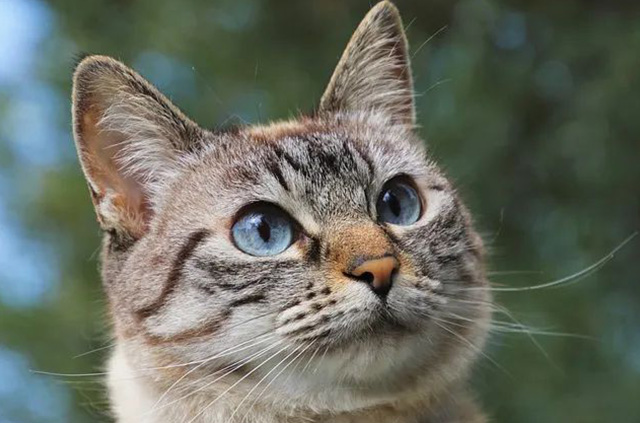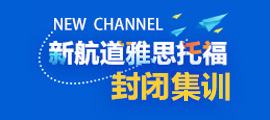全部課程導航
-
雅思課程
-
托福課程
托福基礎班
托福沖刺班
精聽精讀
托福一對一
-
封閉住宿班
-
SAT課程
-
ACT課程
-
GRE/GMAT課程
-
SSAT課程
-
考研課程
-
四/六級課程
老外聊天時常用到的“I'm all ears.”到底是啥意思?
2024/3/18 15:46:24來源:新航道作者:新航道
摘要:老外聊天時常用到的“I'm all ears.”到底是啥意思?
老外聊天時常用到的“I'm all ears.”到底是啥意思?
不知道大家跟老外聊天會不會有這樣的煩惱,對方常常突然蹦出一兩個你不理解的詞,雖然整段話在語境中你能理解啥意思,但就那一兩個你不懂的詞語——我愿稱之為詞匯中的老鼠屎——把你折磨得抓心撓肺。俚語就是英語詞匯中的“老鼠屎”之一,之二就是那些亂七八糟的縮寫,就跟咱的方言似的。打個比方:
- 你跟老外說“腿兒著過去”。
- 老外問你:“腿-er怎么過去?”
- 跟老外出去玩兒,老外問還有多遠?
- 你說:“且著呢。”
- 老外問:“qiě zhē nà 是多少米?”
- 你只好改口:“Almost.”
英文當中有太多這樣的“詞匯刺客”了,表面上看是這個意思,實際上指的是另一種意思。比如我之前寫過的“I got you”,指定不是“我得到你了”的意思啊,跟這個表達有異曲同工之妙的又如:“You name it.” “name names”等等一系列英文版表達。
You name it.
當老外跟你說“You name it.”的時候,千萬別以為是對方讓你給起個名字。這是一句很實用的口語,可以理解為英文中的“anything”,指的是:“凡是你說得出的;應有盡有。”
英文釋義為:“used to say there are many things to choose from.” 指有很多東西可提供選擇。
舉例:Gin, vodka, whisky, beer - you name it, I've got it. 金酒、伏特加、威士忌、啤酒,凡是你說得出的,我這兒都有。

bring it on
當老外跟你說"bring it on"的時候,千萬別以為對方要求你帶來某件東西。這是一個常用的口語表達,意思是:"盡管來吧;放馬過來。”
英文釋義為:"used to say that you accept a challenge or difficult situation and are ready to face it." 指接受挑戰(zhàn)或困難的情況,并準備好面對它。
舉例:Bring it on, mr. dragon. We're not afraid of you! 把它帶上,龍先生.我們一點都不怕你!

I'm all ears.
當老外說"I'm all ears"時,意思是他們非常愿意傾聽你的話,表示他們對你說的內容感興趣。
英文釋義為:"I am listening to you very carefully"
舉例:Is there anything you'd like to tell me? I'm all ears. 你是否有什么需要跟我說的?我在聽。

It's not my cup of tea.
當老外說"It's not my cup of tea."時,意思是某件事不是他們喜歡或擅長的領域。
英文釋義為:"used to say that something is not the type of thing that you like."
舉例:Tennis is not my cup of tea, let's watch TV instead. 打網球不是我的菜,我們看電視吧。

好了,今天的內容到這里就結束啦,大家學會了嗎?更多精彩內容下期再會啦!
免費獲取資料
相關內容
- 托福VS雅思:哪個更適合你?深度解析考試難度與選擇建議
- 小語種培訓機構:如何選擇你的語言進階之路?
- 雅思托福培訓機構:如何選擇最適合你的提分之路?
- 雅思托福培訓機構:選擇指南及備考策略
- 雅思培訓班價格大揭秘:影響因素+省錢攻略,助你理性選擇!
- 小語種高考:英語學困生的逆襲之路!
- 一帶一路下的熱門小語種:就業(yè)前景大揭秘!
- 去英國考雅思還是托福?
- 雅思托福培訓班學費解析:班型及收費情況
- 牛劍、G52025申請季已經拉開序幕!附各重要時間節(jié)點
- “史上最大規(guī)模”A level出分!A*/A成績暴降16000個!滬深名校過來人分享備考經驗
- 如何選擇靠譜雅思培訓班?詳解雅思培訓的優(yōu)勢
- 托福vs雅思:哪個考試更具挑戰(zhàn)性?詳細對比分析
- 上海新航道暑假班:助力學生實現英語學習飛躍
免責聲明
1、如轉載本網原創(chuàng)文章,情表明出處
2、本網轉載媒體稿件旨在傳播更多有益信息,并不代表同意該觀點,本網不承擔稿件侵權行為的連帶責任;
3、在本網博客/論壇發(fā)表言論者,文責自負。






